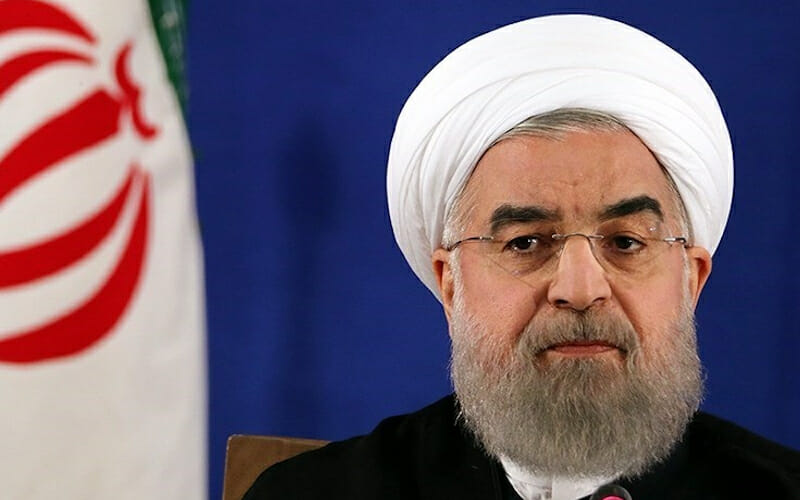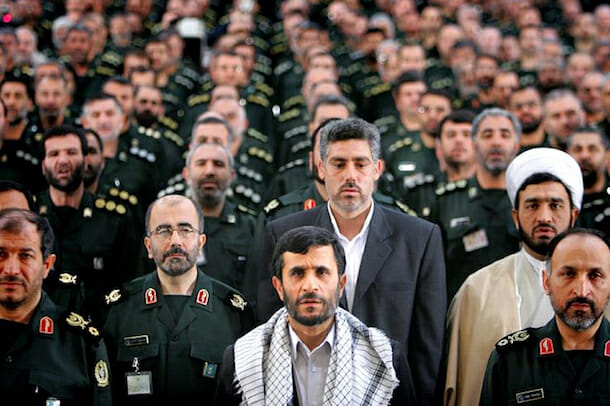
Iran’s Problems are Largely of its own Making
Iran’s role in the Middle East and the region has regularly been questioned and cast into doubt. It’s mostly questioned by the critics of the country’s controversial and ambitious nuclear program and its foreign policy. Iranians will, by and large, gloss over key issues while critics of Tehran specifically cite its foreign policy as a reason to scuttle the nuclear agreement.
The current Foreign Minister, Javad Zarif, was widely seen as a sensible choice to run the Ministry of Foreign Affairs. The truth, however, is that there are few well-trained and educated diplomats with relevant qualifications to run the Ministry. And what progress Zarif does make on the foreign stage his efforts are often undercut by developments at home.
What’s wrong?
Iran has its own vision with regard to foreign policy, militarism and national security, and its interpretation doesn’t necessarily reflect the realities of the 21st century.
Iran contributes to the Syrian war by sending militants and arms. At the same time, it criticizes the military role of the United States and its allies in Yemen and elsewhere while wanting to impose their understanding of the world on a 80-million-strong population. For the international community this looks like a double standard and the reason why some countries, mainly the United States, want to scuttle the Iran nuclear agreement.
Is Iran’s regional role “that bad”?
Internal divisions easily impact Iran’s regional role, including its foreign policy. Street rallies and demonstrations on university campuses reflect different groups’ dissatisfactions with domestic issues like the economy, labour, and the rights of students, women and minorities. Iranians were promised that the economy would improve significantly and it hasn’t.
It’s an open secret that Iran wants to become a regional superpower and is following the French model of Republicanism in its approach to the economy, social life, religious groups, minorities and international relations. However, even the “pretension of hegemony” has its own rules and procedures and cannot be realized through blackmail. Iran’s desire to be a regional hegemon is understandable given Saudi Arabia’s outsized role in the region. The fact that multi-billion-dollar agreements by the Kingdom to buy arms and missiles are approved and can be concluded without much international resistance drives Iran’s motivations in beefing up its own military.

There is an arms race here and an imbalance of power. Saudi Arabia, whose officials spare no opportunity to attack their Iranian counterparts and accuse Iran of expanding its own interpretation of Islam throughout the Muslim world, is rarely admonished for spreading its own version of Islam.
However, putting aside any regional rivalries, Iran’s role in Syria is a cause for concern and must be pared back. Refusing to call President Assad anything but the Middle East’s Milosevic will be doing a favor to a war criminal. The fate of dictators and intransigent leaders who start putting their family’s wealth and personal greed above their nation’s interests is a dead end. Assad is a brutal dictator and Iran’s continued support for him is undermining Iran’s own position on the world stage.
In Iran, a comparable dictator stepped down from the presidency in August 2013. During his eight-year tenure, Mahmoud Ahmadinejad took steps and made statements that often riled the international community. Among the misdeeds attributable to the Ahmadinejad administration were widespread corruption, cronyism, militarization of the economy, stripping newspapers and online media of their independence, and childish decisions in foreign policy that complicated Iran’s relations with its Muslim neighbors. He used the “Holocaust” to win media popularity and made hundreds of unfulfilled promises to younger voters.
Ahmadinejad’s foreign policy was that of a junior international relations student trying to learn some basics just before putting them into practice on a larger scale. He had no idea how foreign policy and diplomacy worked and created a new mess every couple of weeks — inviting the president of Venezuela to pay a visit to the Shrine of the eighth holiest Shia Imam in northeastern Iran, sacking his foreign minister while on an unfinished foreign mission in Senegal, and describing the United Kingdom as “a small island west of Africa.”
These distractions simply made Iran’s regional role less acceptable. Iran’s nuclear program made technical progress without the UN nuclear watchdog’s authorization and led to new sanctions and economic restrictions by the international community, restrictions which primarily impacted ordinary Iranians.
Iran can be one of those powers if…
Iran’s regional role should change and become that of a nation following the rules and regulations of the conventions to which it subscribes, including environmental and educational treaties. International conventions and norms need to be followed by, for instance, cooperating with UNICEF on mother and child protection, and working with the UN Partnerships for Sustainable Development Goals program, including how to reduce CO2 emissions and improving agricultural standards.
